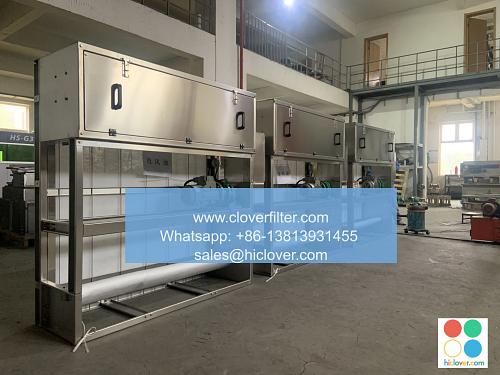AI-Powered Air Filter Systems Revolutionizing Air Quality

AI-Powered Air Filter Systems: Revolutionizing Air Quality for a Healthier World
The Importance of Air Quality
Air quality has become a pressing concern in recent years, with an estimated 9 out of 10 people worldwide breathing polluted air. Poor air quality can lead to respiratory problems, increased morbidity, and even mortality. In response, the demand for efficient and effective air filtration systems has grown exponentially. Enter AI-powered air filter systems, the cutting-edge solution to revolutionize air quality.
How Do AI-Powered Air Filter Systems Work?
Traditional air filtration systems rely on physical barriers, such as HEPA (High Efficiency Particulate Air) filters, to trap pollutants and allergens. While these systems are effective, they have limitations. AI-powered air filter systems, on the other hand, leverage advanced technologies like artificial intelligence (AI) and the Internet of Things (IoT) to optimize filtration.
These systems use sensors and algorithms to continuously monitor and analyze air quality in real-time, detecting even the smallest particles and pollutants. This data is used to adjust the air filter’s settings, ensuring maximum efficacy and efficiency. AI-powered air filter systems can even adapt to changing environmental conditions, such as temperature and humidity, to maintain optimal air quality.
Key Benefits of AI-Powered Air Filter Systems
- Enhanced Efficiency: AI-powered air filter systems are more effective at removing pollutants and allergens, resulting in better air quality and improved indoor health.
- Increased Energy Efficiency: By optimizing filter settings and usage, these systems reduce energy consumption and minimize the need for replacement filters.
- Real-time Monitoring: Continuously monitoring air quality allows for prompt response to changes in the environment, enabling swift action to maintain optimal air conditions.
- Personalized Solutions: AI-powered air filter systems can be tailored to specific environments, such as homes, offices, or hospitals, to meet unique needs.
Applications for AI-Powered Air Filter Systems
- Residential: Improve indoor air quality in homes, apartments, and dormitories, promoting better health and well-being.
- Commercial: Enhance work environments, retail spaces, and public facilities, increasing productivity and employee satisfaction.
- Industries: Clean and maintain air quality in manufacturing, healthcare, and other industries, protecting equipment and employees.
- Hospitality: Provide a hotel or resort experience with optimal air quality, supporting the health and comfort of guests.
Conclusion
The advent of AI-powered air filter systems has transformed the way we approach air quality management. With their ability to continuously monitor and adapt to changing environmental conditions, these systems are poised to revolutionize the industry. As the global demand for clean air grows, AI-powered air filter systems will continue to play a crucial role in maintaining optimal air quality, promoting healthier living and working environments, and contributing to a better world.
I’m happy to help! However, I don’t see a prompt from you. Could you please share what’s on your mind, and I’ll do my best to assist you?

